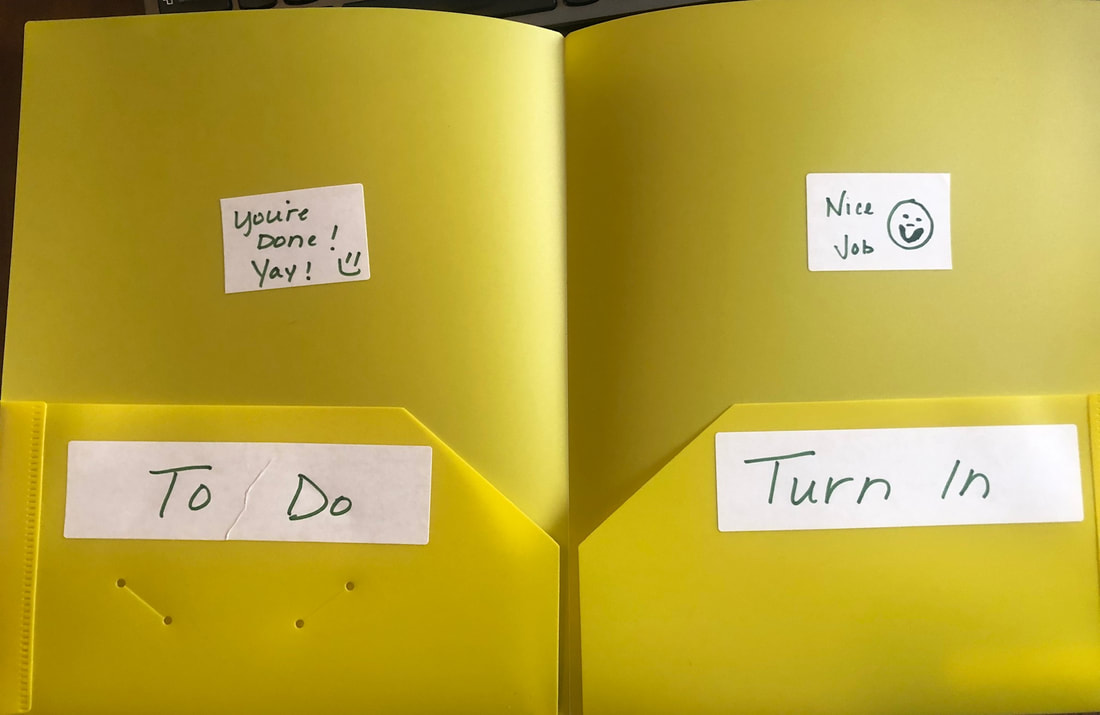Executive Functioning
Executive functioning is dependent on sensory processing because if we don’t get signals, or we get too many signals, the thinking part can’t think. Dragons provide us with a way to talk about these signals, but sometimes they are not the problem. Sometimes the signals come in, but the skills are weak, so there is no response or a delayed response. This can quickly look like intentional behavior such as defiance or a lack of motivation, etc. It can be confusing, but just remember the goal… regulation.
Regulation comes with a balance of signals and skills.
· If the signals come in and the skills are strong, we will see regulated behavior.
· If there are few or no signals, this can be a high threshold issue or a problem with sensory processing. With no signals, the thinking part can’t work even if the skills are strong.
· If there are too many signals, like we see with fight or flight, this can be a low threshold issue or problems with sensory processing. Too many signals prevent the thinking part of the brain from working, so it won’t matter how strong the skills are; we still can’t access them.
·
Sensory processing and executive functions are inter-dependent.
We need signals and we need skills for regulation.
If you want to know the why of behavior, you have to be aware of both.
If signals come in, the threshold is hit, and balance is found, the thinking part of the brain should work. But what if the needed skill is weak or late to develop so the execution or response is slow or non-existent? The skills are too low for the demands of the situation. Now we have a problem.
Executive skills aren’t the same as cognitive skills, and they aren’t related to IQ. They are skills that make it possible to execute or learn from experience. They are like the air traffic control center of our brain, and there are many areas of the brain responsible for the complex behaviors that make us successfully human. They are like any other skill. They must be developed, learned, and then practiced. They are the foundation for navigating the demands of childhood, and eventually the complexities of adulthood.
Remember watching your child learn to walk? They would stand at the table forever. Maybe smiling, maybe fussing, but standing and standing. Maybe they rocked side to side, perhaps they let go for a moment. We encourage, anticipate, and cheer on the process of walking. We would never expect our infant to walk without first watching, standing, getting stronger, and eventually practicing. Expecting the behavior and skills that come from brain development is no different than the process of walking.
Regulation comes with a balance of signals and skills.
· If the signals come in and the skills are strong, we will see regulated behavior.
· If there are few or no signals, this can be a high threshold issue or a problem with sensory processing. With no signals, the thinking part can’t work even if the skills are strong.
· If there are too many signals, like we see with fight or flight, this can be a low threshold issue or problems with sensory processing. Too many signals prevent the thinking part of the brain from working, so it won’t matter how strong the skills are; we still can’t access them.
·
Sensory processing and executive functions are inter-dependent.
We need signals and we need skills for regulation.
If you want to know the why of behavior, you have to be aware of both.
If signals come in, the threshold is hit, and balance is found, the thinking part of the brain should work. But what if the needed skill is weak or late to develop so the execution or response is slow or non-existent? The skills are too low for the demands of the situation. Now we have a problem.
Executive skills aren’t the same as cognitive skills, and they aren’t related to IQ. They are skills that make it possible to execute or learn from experience. They are like the air traffic control center of our brain, and there are many areas of the brain responsible for the complex behaviors that make us successfully human. They are like any other skill. They must be developed, learned, and then practiced. They are the foundation for navigating the demands of childhood, and eventually the complexities of adulthood.
Remember watching your child learn to walk? They would stand at the table forever. Maybe smiling, maybe fussing, but standing and standing. Maybe they rocked side to side, perhaps they let go for a moment. We encourage, anticipate, and cheer on the process of walking. We would never expect our infant to walk without first watching, standing, getting stronger, and eventually practicing. Expecting the behavior and skills that come from brain development is no different than the process of walking.
